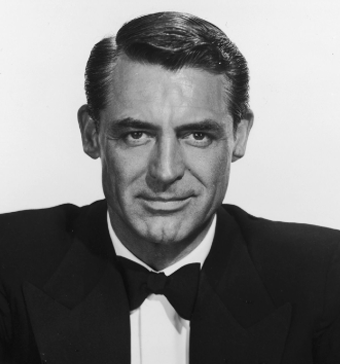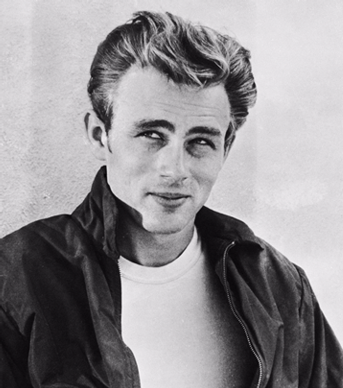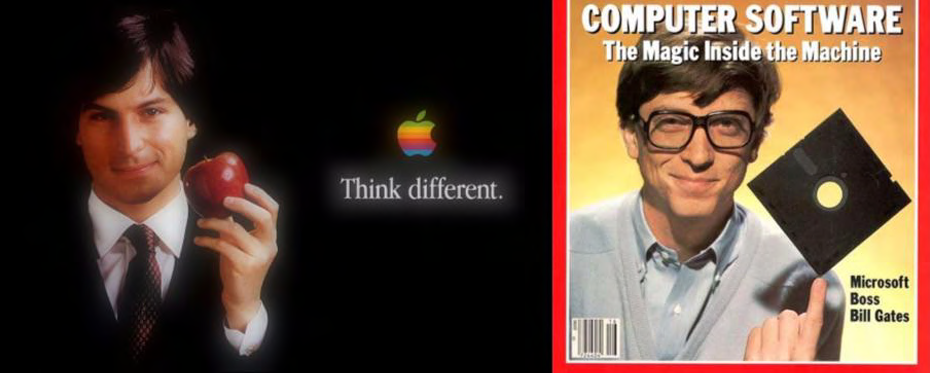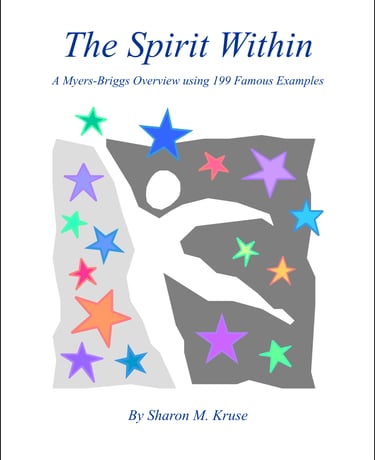Controlled (IJ) / Freeform (IP)
Controlled compared to freeform is like classical music versus jazz. Classical music has a formal structure where every note is defined ahead of time and performed as expected. Jazz uses an off-beat rhythm, off-pitch notes, and improvisation.
He maintained tight control of his carefully crafted public persona for the rest of his life, stating: “Everyone wants to be Cary Grant, even I wish I could be Cary Grant.”
Many actors had difficulty working with Alfred Hitchcock because he knew exactly what he wanted to do before he started filming. He expected actors to follow the script and do what they were told, explaining: “Everything is decided on paper. I do not improvise while the picture is being made.” Cary obediently followed every direction, making four movies with Hitch: Suspicion (1941), Notorious (1946), To Catch a Thief (1955), and North By Northwest (1959).


Cary Grant was the epitome of glamour and charm. His grace, style, and polished manners made him a Hollywood legend. It was an image he developed early in his career, saying: “I was very conscious of my lack of education when I started. I didn’t want it to show, so I invented an accent.... The rest I stole from Noël Coward.”
Cary Grant (ISFJ) / James Dean (ISFP)
Steve Jobs (INTJ) / Bill Gates (INTP)
In 1975, Bill gates co-founded Micro-Soft, Inc. with a boyhood friend. A year later, Steve Jobs co-founded Apple Computer, Inc. with a friend from high school. The two young men had very different approaches to their success.
Jobs succeeded by resisting the overwhelming trend to use Microsoft’s Windows operating system and use his own instead. He also pushed back on pressure to make Apple a software-only company and insisted on designing and producing all of their own hardware. Seen as a demanding perfectionist, he controlled every aspect of the company’s financial decisions, product designs, and marketing.
His carefully designed and crafted products were functional and beautiful, but they didn’t play well with others. Microsoft software could be developed and used on any personal computer; Apple software was designed to run only on Apple computers.
Eventually, Jobs came to understand the importance of multiple platforms and created iTunes for Windows in 2003. This allowed many more customers to find and use Apple’s iPod music player. And in 2007, he finally allowed outside developers to create software apps for the iPhone.
James Dean believed that acting should be spontaneous and in the moment, stringing a series of brilliant moments together to create an effective performance.
He explained: “When an actor plays a scene exactly the way a director orders, it isn’t acting. It’s following instructions. Anyone with the physical qualifications can do that. So the director’s task is just that— to direct, to point the way. Then the actor takes over. And he must be allowed the space, the freedom to express himself in the role. Without that space, an actor is no more than an unthinking robot with a chest-full of push buttons.”


Dean was well-known for ignoring scripts and improvising. Director Elia Kazan and the cast of East of Eden (1955) remarked that Dean was unprepared on the set and often deviated from the script. In the emotional climax when his father rejected his gift, the script directed Dean to run out of the room. Instead, he collapsed onto his father’s chest, sobbing with grief while clinging to him.


Figure 102: Two Approaches to Personal Computers
Bill Gates believed that no single hardware or software product could provide a lasting competitive advantage. He understood that every manufacturer of personal computers would need an operating system, and created Windows with the intent of developing software that used the Windows operating system. More importantly, he allowed other companies to design software for his platform. Gates also purchased and rebranded software products from other companies.
When the market became flooded with personal computers from a variety of manufacturers, the vast majority of them used Microsoft’s operating system. By 1998, Microsoft Windows dominated the competition with 90% of the market share.

